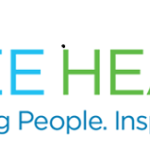 Adult-use marijuana will not be on the 2020 ballot, but the year does welcome the beginning of Florida’s awaited “Hemp program”, which is governed by rules effective New Year’s Day. This article is intended to be useful information for anyone who plans to locate, or is considering locating themselves somewhere in Florida’s hemp industry.
Adult-use marijuana will not be on the 2020 ballot, but the year does welcome the beginning of Florida’s awaited “Hemp program”, which is governed by rules effective New Year’s Day. This article is intended to be useful information for anyone who plans to locate, or is considering locating themselves somewhere in Florida’s hemp industry.
Hemp used to be a staple crop for American farmers. For many years leading to 2020 it was illegal to grow, extract, distribute and/or sell hemp in Florida. The federal government passed a law which removed low-THC cannabis from the Controlled Substances Act and required states which wish to have a hemp industry to create a program for submission to the federal government which meets all of the federal government’s requirements. Florida’s state government passed a law and, subsequently, particular rules to govern hemp, its treatment after harvest and hemp products in Florida. Florida’s hemp plan has been approved by the federal government. There are still further rules to be enacted, and the statute itself will no doubt face court challenges and amendments. Florida-grown hemp will be quickly integrated into the food, nutrition, health, building, textile, fuel, jewelry and other industries. The law was passed in 2019 and the rules which have already been enacted took effect on January 1, 2020. Here’s we are today:
Cultivation
The “Cultivation Rule” has not yet been enacted. No hemp-growing licenses are being issued just yet, except for the previously-permitted licenses under a trial program run through UF and FAMU. New licensing rules are expected this legislative session (before spring). By the end of the year it is expected that seeds will have grown into Florida’s first hemp crops and been harvested.
The seeds seem to be a strategic hurdle for Florida growers. It appears that only seeds certified by UF or FAMU, or one of only about 10 licensed certifiers will initially be allowed in Florida.
Also, it is clear that any land on which hemp will be grown will need to be on record with the state, specifically requiring registration of a legal description and GPS coordinates for any plot.
Travel
Any commercial transportation of hemp within the state of Florida, from out of state or within, requires inspection at an agricultural inspection station and provide a COA (certificate of analyis) to prove hemp and not marijuana and a bill of sale for the hemp.
Horizontalization
As opposed to the medical cannabis program (which is vertical), the hemp program is intended to be horizontal, which means with the proper licensing, anyone can participate in any given part, or in any group of parts of the supply chain.
Wholesaling and Distribution
All sales must be accompanied by presentation of a certificate of analysis from a 3rd party lab. It must be verified to have no more that .3% THC and must be certified to be free of contaminants unsafe for human consumption. It all also must come in packaging which includes a barcode which can be scanned for the certificate of analysis, a batch number, expiration date and statement of total milligrams contained.
Food
“Hemp Extract” (not labeled CBD!) can now be ingested by anyone. This aspect of Florida law is poorly written. If read literally, all ingestible hemp products must come in packaging and be labeled with an analysis or barcode which can link to an analysis. The packaging required is “bottled”, “canned”, “cartoned”, “bagged” or “wrapped”- which means that restaurants can’t sell loose hemp food products and can’t infuse and sell products which are not then placed back into labeled packaging.
A manufacturer can infuse, then cook and bake, as long as the labeling and permitting requirements are met. The law reads such that it is illegal to, say, pour CBD into coffee and serve it to a customer. That would violate the package and labeling aspects of the law.
A retail establishment should be selling packaged and labeled products. To do so requires a “Hemp Food Establishment Permit”, and may be required beyond a basic food permit. This permit is indeed required for online sales of food products.
Federal Overlap
U.S. Food and Drug Administration regulates food and nutritional supplements, subject to delegation to the states. This means that unless health claims are approved by the FDA, it remains illegal to make claims such as those seen on advertisements everywhere, touting the health benefits of hemp and CBD. It remains illegal (at least theoretically) to make claims about sleep, relaxation or any other health virtue unless and until some new federal legislation is enacted.
Bottom Line
Patience! As with the medical cannabis program, it’s not all built perfectly in a day, especially in the hemp industry.
A crop which can be eaten and make fuel is a complex thing for any government to legislate. This winter session in Tallahassee will see further enabling rules and the federal agencies will endeavor to make practical rules nationwide in 2020 to make hemp and products made with hemp extracts much more readily-accessible. However, this is all new territory and we all will have to wait for several years of the federal and state governments to get the law and rules right so that everyone from growers, to extractors, to stores, cooks and consumers can freely buy and sell products from a healthful plant with much promise and no downside.

























